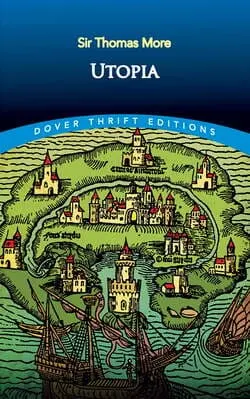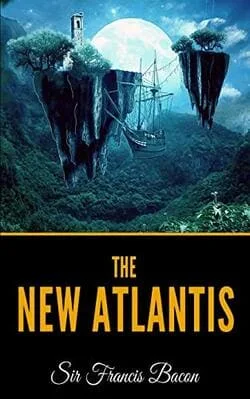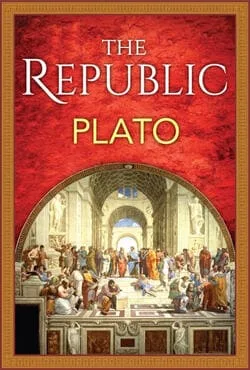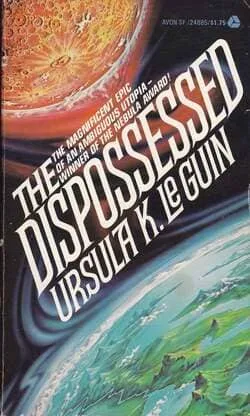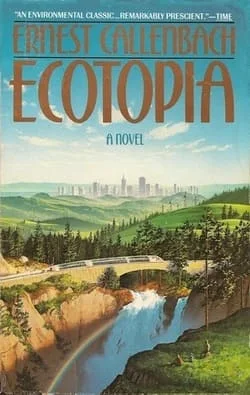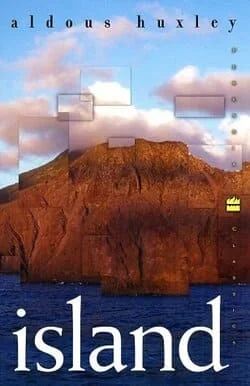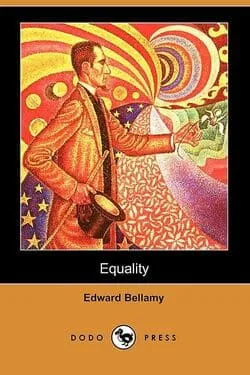Top 15 Utopian Books to Read: Dreams of Perfect Societies
Ever dreamed of a perfect world? Here are 15 utopian books that will transport you to societies where peace, equality, and prosperity reign supreme.
15 Must-Read Books for Fans of Utopian Literature
Before we delve into discussing the best utopian books, let's take a moment to explore the meaning of the term and its origins.
What is utopia?
Utopia refers to an imagined or hypothetical ideal society or community characterized by highly desirable or nearly perfect qualities. It is often depicted as a place or state where everything is harmonious, just, and optimized for the well-being and happiness of its inhabitants. The concept of utopia has been explored in various forms throughout history, including literature, philosophy, and social and political discourse.
The term "utopia" was coined by Sir Thomas More in 1516 as the title of his book "Utopia." In this work, More described a fictional island society where communal property, social equality, and rational governance were key features. While the term originally referred to More's specific vision, it has since come to represent a broader idea of an idealized society that may not be achievable in reality but serves as a thought experiment to explore possibilities for improving human existence.
Related post: 20 of the Best Post-Apocalyptic Movies of All Time
There is no one definition of utopia, and what constitutes a utopia can vary from person to person. However, all utopias share some common features, such as:
- Absence of poverty, crime, and war
- Equality of opportunity and social justice
- A high standard of living and quality of life
- A sustainable environment
- A harmonious relationship between humans and nature
Utopian visions can vary widely depending on the cultural, philosophical, and historical context in which they are presented. Some utopian ideas emphasize equality, justice, and cooperation, while others focus on technological advancements, individual freedom, or spiritual enlightenment. It's important to note that while the concept of utopia is often thought-provoking and inspiring, many utopian visions are also criticized for being overly simplistic, unrealistic, or even oppressive when implemented in practice.
Utopias can be classified into two main types:
- Social utopias: These utopias focus on improving the social and political aspects of society. They often advocate for equality, justice, and peace.
- Technological utopias: These utopias focus on improving the technological aspects of society. They often imagine a world where technology is used to solve all of our problems.
Utopias are often seen as unrealistic or unattainable, but they can still be valuable tools for thinking about how to improve our own societies. They can help us to identify the problems that need to be solved and to imagine new ways of organizing our lives. Utopia is a dream, but it is a dream that can inspire us to make the world a better place.
Related post: A Journey through Time: The Top 23 Historical Fiction Books of All Time
When I first became interested in utopias, the book that captured my attention was "Utopia" by Thomas More. I always wondered how More depicted one of the earliest modern utopias in the world of literature. Reading this book sparked my curiosity about other utopias as well. The translator of the book I read mentioned several other utopian works, so I delved into a few more. I continued with "The City of the Sun" by Tommaso Campanella and also explored “The Republic” by Plato. I have a growing list of other utopian works that I plan to read in the future.
Here are some of the finest examples of utopian literature for you to consider reading.
1. "Utopia" by Thomas More (1516)
Utopia is a work of fiction and socio-political satire by Thomas More, written in Latin and published in 1516. The book is a frame narrative primarily depicting a fictional island society and its religious, social and political customs.
In Utopia, More describes a society that is free from the ills of contemporary society, such as poverty, inequality, and war. The Utopians are a highly organized and industrious people who live in peace and harmony. They share everything in common and have no private property.
Utopia is a highly idealized society, and it is not clear whether More believed that it could ever be achieved in reality. However, the book has been influential in shaping utopian thought, and it continues to be read and studied today.
2. “New Atlantis” by Francis Bacon (1627)
New Atlantis is an unfinished utopian novel by Sir Francis Bacon, published posthumously in 1627. The novel describes the customs and culture of a utopian island society known as Bensalem, at the center of which lies a science and research institution called Salomon's House.
In New Atlantis, Bacon portrays a vision of the future of human discovery and knowledge, expressing his aspirations and ideals for humankind. The novel is notable for its emphasis on science and technology, and its depiction of a society where knowledge is used for the common good.
3. "The City of the Sun" by Tommaso Campanella (1623)
The City of the Sun is a utopian novel by Tommaso Campanella, written in Italian and published in 1623. The book describes a fictional city on a remote island, ruled by a benevolent priest-king. The citizens of the city live in peace and harmony, and they are dedicated to the pursuit of knowledge and enlightenment.
The City of the Sun is a highly idealized society, and it is not clear whether Campanella believed that it could ever be achieved in reality. However, the book has been influential in shaping utopian thought, and it continues to be read and studied today.
4. “The Republic” by Plato (375 BCE)
The Republic is a Socratic dialogue, authored by Plato around 375 BCE, concerning justice, the order and character of the just city-state, and the just man.
In The Republic, Plato explores the nature of justice and argues that the just man is the happiest man. He also discusses the ideal form of government, which he believes is a republic ruled by philosopher-kings.
The Republic is one of the most influential works of philosophy ever written, and it has been interpreted and debated by scholars for centuries.
5. “Looking Backward” by Edward Bellamy (1888)
Looking Backward is a utopian novel by Edward Bellamy, published in 1888. The novel tells the story of Julian West, a wealthy Bostonian who falls into a cataleptic sleep in 1887 and wakes up in the year 2000 to find a utopian society where poverty, inequality, and crime have been abolished.
Looking Backward was a bestseller in its day and was influential in shaping the American progressive movement. The novel's vision of a utopian society inspired many people to work for social change.
6. “News from Nowhere” by William Morris (1890)
News from Nowhere is a utopian novel by William Morris, published in 1890. The novel tells the story of a man who falls asleep in Victorian London and wakes up in the year 2000 to find a utopian society where poverty, inequality, and industrialization have been abolished.
News from Nowhere is a highly idealistic work, and it is not clear whether Morris believed that it could ever be achieved in reality. However, the book has been influential in shaping utopian thought, and it continues to be read and studied today.
7. “The Dispossessed” by Ursula K. Le Guin (1974)
The Dispossessed is a science fiction novel by Ursula K. Le Guin, published in 1974. The novel tells the story of Shevek, a physicist from the anarchist planet Anarres, who travels to the capitalist planet Urras in search of a way to unite the two planets. The novel explores themes of utopia and anarcho-syndicalism. Le Guin's work is unique in that it presents both a utopian society and its contrasting counterpart, allowing readers to critically examine the challenges and complexities of creating an ideal community.
The Dispossessed is a complex and thought-provoking novel that explores the nature of anarchism, economics, and the human condition. It has been praised for its insights into utopianism and its challenging vision of a better world.
8. “Ecotopia” by Ernest Callenbach (1975)
Ecotopia is a utopian novel by Ernest Callenbach, published in 1975. The novel describes a bioregionalist society that has seceded from the United States and is committed to environmentalism, social justice, and nonviolence.
Ecotopia is divided into two parts. The first part tells the story of William Weston, a journalist from the United States who travels to Ecotopia to learn more about this new society. The second part is a series of essays that describe the different aspects of Ecotopian society.
Ecotopia has been praised for its vision of a sustainable and just society, and it has been influential in the environmental movement.
9. “Woman on the Edge of Time” by Marge Piercy (1976)
Woman on the Edge of Time is a science fiction novel by Marge Piercy, published in 1976. The novel tells the story of Connie Ramos, a woman in a mental institution who is able to communicate with a woman named Luciente from the year 2137.
Connie learns about Luciente's utopian society, which is based on cooperation, equality, and respect for the environment. She is inspired by Luciente's vision of a better future, and she begins to fight for change in her own time.
Woman on the Edge of Time is a powerful and thought-provoking novel that explores the themes of feminism, utopianism, and social justice. It has been praised for its insights into human nature and society, and it continues to be read and studied today.
10. "Island" by Aldous Huxley (1962)
Island is a utopian novel by Aldous Huxley, published in 1962. The novel tells the story of Will Farnaby, a cynical journalist who is shipwrecked on the fictional island of Pala.
On Pala, Will encounters a society that is free from the ills of the modern world, such as war, poverty, and crime. The Palanese have a deep understanding of human nature and have created a society that is based on cooperation, love, and respect for the environment.
Island is a hopeful and optimistic novel that offers a vision of a better world. It has been praised for its insights into human nature and society, and it continues to be read and studied today.
11. “Herland" by Charlotte Perkins Gilman (1915)
Herland is a utopian novel by Charlotte Perkins Gilman, published in 1915. The novel tells the story of three men who discover a hidden land inhabited only by women. The women of Herland have created a peaceful and prosperous society without the need for men.
Herland is a feminist utopia that explores the possibilities of a society where women are free from male domination. The novel has been praised for its insights into gender roles and its vision of a better world.
12. "Equality" by Edward Bellamy (1897)
Equality is a utopian novel by Edward Bellamy, and the sequel to Looking Backward. The novel tells the story of Julian West, who wakes up in the year 2000 to find that the society he knew has been transformed into a utopian society where equality is the law of the land.
Equality is a more radical and idealistic work than Looking Backward, and it explores the possibilities of a society where there is no private property, no money, and no class distinctions.
13. "A Crystal Age" by W. H. Hudson (1906)
A Crystal Age is a utopian novel by W. H. Hudson, published in 1906. The novel tells the story of a man who falls asleep in a cave and wakes up in a far-future utopia. The society of the Crystal Age is organized around a belief in love and compassion, and it has achieved a high level of technological advancement without sacrificing its connection to nature.
A Crystal Age is a highly imaginative and thought-provoking novel that has been praised for its vision of a better world.
14. "Mizora: A Prophecy" by Mary E. Bradley Lane (1890)
Mizora: A Prophecy is a utopian novel by Mary E. Bradley Lane, published in 1890. The novel tells the story of a woman named Mizora who travels to a utopian society in the future. The society of Mizora is ruled by women, and it is based on the principles of peace, equality, and cooperation.
Mizora: A Prophecy is a feminist utopia that explores the possibilities of a society where women are free from male domination. The novel has been praised for its insights into gender roles and its vision of a better world.
15. “Walden Two” by B. F. Skinner (1948)
Walden Two is a utopian novel by B. F. Skinner, published in 1948. The novel tells the story of a group of people who create a utopian community based on the principles of behaviorism. The community, called Walden Two, is located in a rural area and is designed to maximize happiness and productivity.
Walden Two is a highly controversial novel, and it has been praised and criticized for its depiction of a society that is controlled by science.


